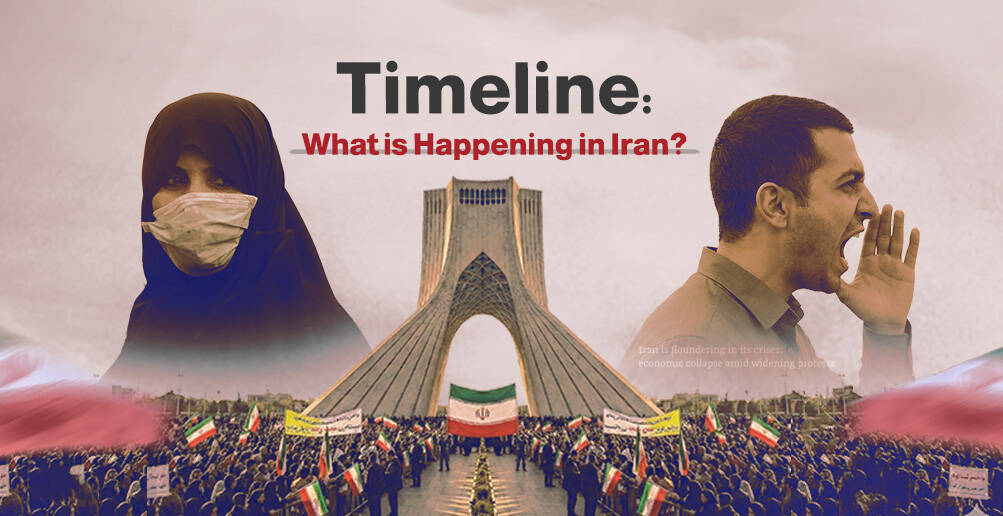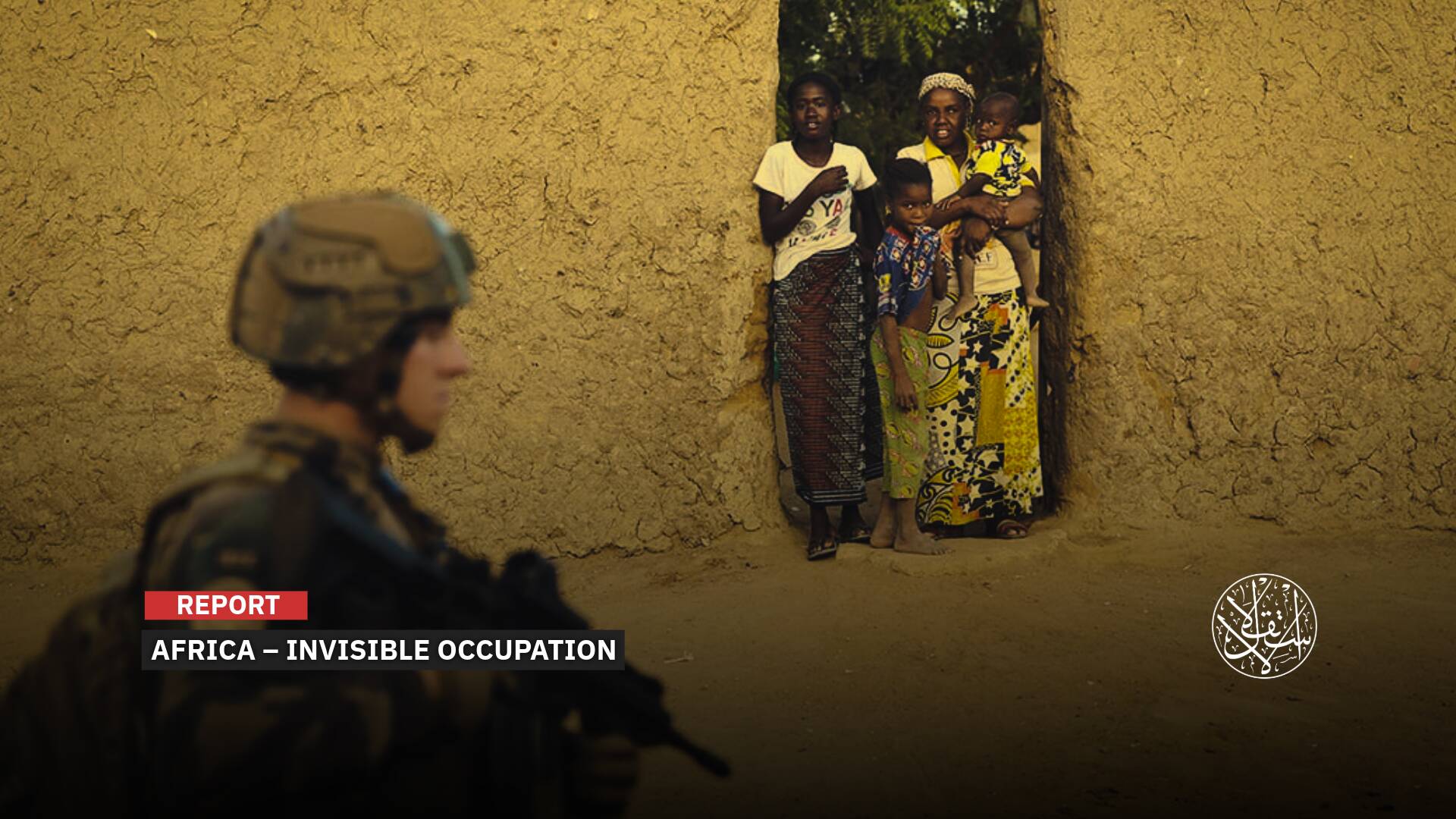'Canary Mission': The Shadowy Blacklist Targeting Palestine Supporters in America

The Israeli intelligence used 'Canary Mission' profiles as a pretext to detain visitors listed at the border.
In the heart of the American landscape, where freedom of speech is purported to be protected and upheld, a shadowy organization named Canary Mission is quietly taking root.
Initially emerging as a digital platform with a benign facade, its true, darker agenda has become increasingly apparent over time.
The organization claims to document "antisemitism and extremism," yet, in reality, it operates as a Zionist entity—transforming into a tool of political and moral blackmail.
Canary Mission’s primary targets are students, academics, and activists at American universities, particularly those who advocate for Palestinian rights.
It operates beyond any legal accountability or media transparency, collecting images, quoting tweets, and weaving security narratives against their subjects, portraying them as "potential threats" in the eyes of institutions, corporations, and universities.
Canary Mission is not a formal intelligence agency, yet it exercises surveillance and stigmatization in the fullest sense of the word. In many ways, it resembles a modern-day version of the "McCarthyist" lists that hunted leftists in 1950s America—only this time with an Israeli agenda, cyber tactics, and the backing of President Donald Trump's administration.
So, how has Canary Mission succeeded in sowing fear without facing any scrutiny? And how did American university campuses transform into hunting grounds for anyone who dares to raise their voice in support of Palestine?
The Latest Victims
The latest victim of this organization is activist and student Abdelrahman ElGendy, an Egyptian national residing in the United States.
Through his social media accounts, he shared the harrowing details of his ordeal with Canary Mission, describing how it ultimately led to his downfall.
"After three years of carving out a home-in-people during my U.S. exile, I was forced to flee into ghourba once more," on May 2, 2025, he posted.
"As an Egyptian international student and former six-year political prisoner doxxed by a notorious Zionist group, lawyers warned me to prepare for an ICE arrest. I was angry, grieving. The stakes were too high—not just U.S. detention and deportation, but the risk of life imprisonment again—like tens of thousands of others in Egypt. So, I spent my final month in self-imposed lockdown, writing this piece. Then, when the risk became too high, I left, heavy with unsaid goodbyes and the knowledge I might never return," he continued.
"What myths does the U.S. empire insist on believing about itself? What will it take for fascism to no longer be ‘descending’? How is the refusal to name political incarceration—even by allies—a form of supremacy? What does it mean when our crushed, nonresident alien bodies serve only as foreshadowing for a U.S. citizen’s hypothetical harm? And how does all this vanish beside the shredded bodies of Palestinians in Gaza?"
Reports surfaced indicating that his university, the University of Pittsburgh in Pennsylvania, was among the institutions that had provided lists of students for deportation. Egypt, his home country, was one of the targeted nationalities.
Danger Zone
Abdelrahman ElGendy went on to recount that, within weeks, the campaigns of arrest and deportation began to target other students from similar backgrounds, including Mahmoud Khalil, Leqaa Kordia, Rumeysa Ozturk, and others.
"I received a direct warning from the lawyers: 'You are in a high-risk zone. Your deportation to Egypt could mean imprisonment again, and possibly even torture,'" he continued.
"The decision was difficult, but inevitable," he added. "I closed my public accounts and isolated myself from the world. I spent an entire month in my apartment, never opening the door, surrounded by six suitcases, as I finished my final semester of the master's program."
He defended his thesis via Zoom and submitted the manuscript of his final book to his American publisher, just in case of any sudden disappearance or arrest.
"I was filled with anger," he recalled. "I had fled to the other side of the world to write freely, only to find myself living through the nightmare of repression once again—this time with a new language and under the guise of legality."
"I wrote about prison, exile, and repression, all while running from them once more, haunted by the specter of handcuffs that could snap shut at any moment."
"Just two weeks ago, my student visa was revoked by my university. It was a final warning. I left before my graduation ceremony, leaving behind years of struggle and growth, friends, a book project, and a home that felt like my own. After six years in Egyptian prisons, and years of wandering in exile, I once again had to leave everything behind. Now, I am on a long road between temporary countries, searching for a new point of safety."
ElGendy concluded his message with a stark declaration, "Let me make this clear: the American empire is not just complicit—it is directly complicit in our repression, in supporting the dictatorships that do its dirty work. Fascist regimes do not operate alone; they complement one another."
Canary Mission
Years ago, specifically in 2014, a new organization called Canary Mission launched a website and a dedicated YouTube channel to outline its mission: maintaining a blacklist of university students who are perceived as anti-Semitic.
A video posted on the organization’s site also warned that American universities had become breeding grounds for “anti-Israel extremism”, providing safe spaces for students to attend "anti-Semitic conferences and anti-American protests."
To combat the prevailing situation, Canary Mission created an extensive database of students and professors involved in activities deemed hostile to “Israel.”
Its primary objective is to ensure that anti-Semitic students are unable to secure lucrative jobs after graduation.
The organization warned on its website, "These individuals are applying for jobs at your companies; it is your responsibility to ensure that today’s extremists do not become tomorrow's employees."
Over the following decade, Canary Mission, whose name is derived from the phrase "canary in the coal mine," succeeded in fulfilling its promise.
Its database now contains profiles of thousands of students and professors, and has expanded to include professionals such as doctors and nurses.
Those listed in the organization's database have faced harassment and intimidation, with some even losing their jobs as a result.
Even before the recent events, there were victims of the Zionist organization, with Canary Mission's website being used as evidence when Lara Alqasem, a Palestinian-American graduate student, was denied entry to the U.S. to study at a local university in 2018 (during Trump’s first term).
The denial was based on her previous work with the University of Florida chapter of "Students for Justice in Palestine."
At the time, Alqasem’s lawyers stated that the government’s case against her heavily relied on her profile on Canary Mission, according to The Times of Israel.
Lara eventually won an appeal, allowing her to remain in the U.S. after a protracted legal battle.

What is the Canary Mission?
The Canary Mission does not only target those who openly support Palestine; it sends a message to everyone: silence is the only path to safety.
In this way, the organization acts as a proactive censor, psychologically and academically trapping activists, without firing a single shot.
Israeli Intelligence has used Canary Mission profiles as a pretext to detain visitors listed in its database at the border, according to a report from Fox News on April 14, 2025.
"Since the beginning of Trump’s second administration, the deportation of activists targeted by the organization from the United States has begun," he stated.
One such incident involved plainclothes officers arresting graduate student Rumeysa Ozturk, a Turkish national, on the streets of Boston in late March 2025.
Her lawyers claimed that the sole reason for her arrest was her profile on Canary Mission.
While the Trump administration claimed she was involved in activities "supporting Hamas," the Homeland Security memorandum justifying her arrest cited only an opinion piece she had written in support of the boycott of “Israel”, using language strikingly similar to that on her Canary Mission profile, as reported by Fox News.
Nevertheless, the organization expressed satisfaction in taking credit for the arrest. The Canary Mission account on X posted a celebratory tweet, claiming that "sources indicate that her Canary Mission profile was the primary reason" for the Turkish student's detention.
The organization currently maintains a list of seven other students and professors it believes should be deported, two of whom, Mahmoud Khalil and Mohsen Mahdawi, are in custody of U.S. Immigration and Customs Enforcement.
Mahdawi was arrested after his name appeared on the list, while Khalil was detained just before it was published.
The mysterious rise of the Canary Mission and its strong influence on decision-makers at the White House has remained a major enigma.
This is especially notable given that there are many "pro-Israel" activists within other groups and organizations across the United States, many of whom specifically focus on university campuses.
However, Canary Mission stands out for two key features: its mysterious structure and its highly aggressive tactics. The organization's website does not list a president, board of directors, or even provide any staff directory.
On March 28, 2025, New York Intelligencer published its report on the organization, revealing that its headquarters are based in "Israel," specifically in the town of Beit Shemesh, a medium-sized city near Jerusalem.
The magazine traced the address listed in the organization's archives on its website, only to discover that the address mentioned in the documents led to a locked, seemingly abandoned building within Beit Shemesh.
Regarding the organization's funding sources, it has been revealed that, over the years, journalists have identified some of Canary Mission's income streams, including significant donations from prominent American Jewish charitable organizations.
However, a large portion of the organization's funding remains undisclosed due to its use of a financial group called the Central Fund of Israel (CFI), an entity that is not subject to U.S. financial oversight and has direct ties to the occupying state. The group is shrouded in a veil of secrecy and confidentiality.

Israeli Intelligence
Despite the heavy secrecy surrounding its funding, some sources were uncovered due to an error in a tax form, with the details published on October 4, 2018, by The Forward.
The report revealed that one of the prominent financial backers of the group is billionaire Sanford Diller, a wealthy California heir and a right-wing supporter of "Israel," known for his anti-Muslim and anti-Black views.
Diller (who passed away in 2018) was one of the most prominent supporters of the U.S. President Donald Trump.
He also backed several anti-Islam organizations in the United States, including the American Freedom Law Center.
At the end of 2016, the Diller Foundation donated $100,000, via the Jewish Community Federation, to a mysterious Israeli organization called Megamot Shalom. It was later revealed that this was merely a front for the Canary Mission.
A deeper investigation into the funding sources uncovered a vast support network rooted in wealthy Jewish charitable organizations across the United States, with the Jewish Community Foundation of Los Angeles (JCF) at the forefront. The foundation manages assets valued at over $1.3 billion.
The JCF is one of the most prominent financial arms of the American Jewish community and previously represented the Jewish Federation of San Francisco.
What is striking is that while the foundation funnels millions of dollars into supporting right-wing pro-occupation groups and Canary Mission, it refuses to fund any Jewish initiative that criticizes the policies of the occupation or advocates for Palestinian rights, including Jewish-led human rights organizations.
Donation records revealed by The Forward show that an anonymous donor, shielded under the foundation’s legal protections, contributed a significant sum of $250,000 to one of the entities that serves as a financial front for Canary Mission.
The name of American businessman of Israeli descent and influential AIPAC committee member, Adam Milstein, also appears on the list of prominent contributors to the funding of the organization.
Milstein is known for his outspoken support for "Israel" on social media and as a veteran of the Israeli military during the 1973 Yom Kippur War.
He also played a role in founding the Israeli-American Council and holds positions on the boards of several prominent Jewish organizations in Los Angeles.

Sources of Funding
With this ideologically driven financial support, Canary Mission has evolved from a mere smear site into a coordinated pressure system, drawing its strength from substantial political capital dedicated to silencing critics of the occupation, even within American universities.
U.S.-based activist Karim Rizk commented on the organization's activities, describing its growing threat to the future of those who support Palestine and the rights of the Palestinian people.
In an interview with Al-Estiklal, he stated, "Canary Mission today enacts social and legal punishment on activists, without any oversight or accountability."
"What began as a digital platform documenting student opinions has now transformed into an unofficial blacklist, used against them in immigration procedures, scholarships, employment, and even arrest and deportation," Rizk continued.
"The danger of Canary Mission lies in the fact that it is not subject to any judicial or professional accountability, and the identities of those who run or directly fund it remain unknown, granting it an unspoken immunity to carry out systematic violations against activists and students."
The legal principle that one is innocent until proven guilty is entirely reversed in the logic of this organization, he added.
Allegations are presented as facts and broadcasted into the digital space, where they remain an eternal stain, according to Rizk.
"The more dangerous aspect is that this platform weaponizes political rhetoric with technological tools, issuing judgments that are effectively used within decision-making circles in government, intelligence agencies, universities, embassies, and immigration authorities, without any opportunity for appeal, defense, or erasure."
"What Canary Mission is doing is not just an individual violation of freedom of speech, but a threat to the space for human rights and political activism within the United States. It sets a dangerous precedent for normalizing surveillance based on affiliation and opinion."
"The continued silence towards these extremist organizations with opaque structures and funding, like Canary Mission, by academic and human rights institutions, implicitly means acceptance of criminalizing solidarity, legitimizing intimidation, and opening the door to other forms of organized surveillance carried out by non-governmental hands but with clear agendas, chief among them Zionism," Rizk concluded.
Sources
- Following Forward Report, Federation Says It Will No Longer Fund Canary Mission
- OUR MISSION
- This pro-Israel group keeps a blacklist. Now it’s taking credit for deportations.
- Canary Mission is an online group that targets critics of ‘Israel’. [Arabic]
- The Pro-Israel Group That Led to Rumeysa Ozturk’s Arrest Canary Mission has a history of putting activists on the Trump administration’s radar.
- Who is the Canary Mission group, and who funds it? [Arabic]











